Shipping goods from China to Israel presents an array of challenges and opportunities for importers. Among the various transportation methods available, sea freight has emerged as a preferred choice for many businesses. Renowned for its cost-effectiveness, ability to accommodate large shipments, and reliable transit times, sea freight caters to the diverse needs of modern importers. In this article, we explore the key advantages of choosing sea freight for your shipping needs, the different types of services available, factors influencing costs and transit times, and essential considerations for selecting a trustworthy freight forwarder. Whether you’re a seasoned trader or venturing into international logistics for the first time, understanding the nuances of sea freight can significantly enhance your importing experience.
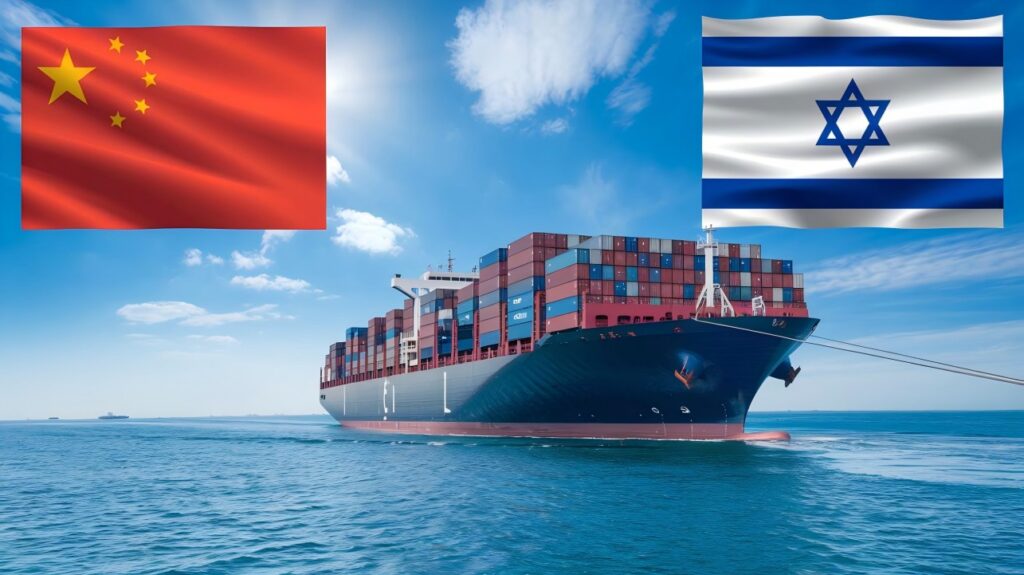
Why Choose Sea Freight for Shipping from China to Israel?
Shipping goods from China to Israel presents unique challenges and opportunities for importers. One of the most effective options for this process is sea freight. Below, we delve into the various reasons why sea freight stands out as a preferred method for transporting goods across this significant route.
Cost-Effective
One of the primary advantages of sea freight is its cost-effectiveness, particularly for bulk shipments. The cost per unit tends to decrease as the shipment size increases, making it a financially viable option for businesses looking to minimize shipping expenses. Compared to other methods such as air freight, which can be significantly more expensive, sea freight allows importers to save a substantial amount of money on logistics. For example, the average cost of shipping a 20-foot container from China to Israel can range from $1,500 to $3,000, depending on various factors such as fuel prices and shipping lines. This makes it a competitive choice for businesses of all sizes.
Accommodates Large Shipments
Sea freight is especially advantageous for businesses that require the transportation of large quantities of goods. Container ships are designed to carry massive loads, often exceeding thousands of tons. This capability makes shipping via sea particularly beneficial for importers who deal in bulk commodities, industrial equipment, or heavy machinery. By utilizing sea freight, businesses can consolidate their shipments, reducing the frequency of transportation and associated costs.
Versatile Container Options
One of the compelling aspects of sea freight is the variety of container options available. Importers can choose between different sizes and types of containers based on their specific needs:
| Container Type | Description |
|---|---|
| Standard Container | Commonly used for general cargo |
| Reefer Container | Temperature-controlled for perishable goods |
| Flat Rack Container | Ideal for oversized cargo that cannot fit in standard containers |
| Open Top Container | Suitable for tall items requiring loading from the top |
This versatility allows businesses to tailor their shipping solutions, ensuring that their goods are transported safely and efficiently.
Reliable Transit Times
Sea freight services boast reliable transit times, which can be crucial for businesses looking to maintain inventory levels and meet customer demand. While it is true that sea freight generally takes longer than air freight, many shipping lines offer regular schedules with predictable arrival times. For example, transporting goods from major ports in China to Israel typically takes between 25 to 35 days. Importers can benefit from this reliability by planning their supply chain processes accordingly, thereby reducing the risk of stockouts or delayed deliveries.
Environmentally Friendly
With an increasing emphasis on sustainability, sea freight is often regarded as a more environmentally friendly option compared to air freight. Shipping by sea emits significantly less CO2 per ton-mile, making it a preferable choice for businesses aiming to reduce their carbon footprint. This characteristic not only aligns with corporate social responsibility goals but can also enhance a company’s reputation among environmentally conscious consumers.
Reduced Risk of Damage
Transporting goods via sea freight typically involves lower risks of damage compared to other shipping methods. The containers used in sea transport are designed to withstand harsh marine environments, offering protection against external elements. Furthermore, the handling of containers during loading and unloading is generally more systematic and controlled, reducing the likelihood of mishandling. Therefore, businesses can have peace of mind knowing that their valuable goods are better safeguarded throughout the journey.
Shipping From China to Middle East Countries:
- Shipping from China to Saudi Arabia
- Shipping from China to UAE
- Shipping from china to KUWAIT
- Shipping From China To EGYPT
- Shipping from China to Bahrain
- Shipping From China To Jordan
- Shipping From China To Israel
- Shipping from China to Qatar
- Shipping From China To IRAQ
- Shipping from China to Iran
Types of Sea Freight Services
When opting for sea freight, importers can choose between two main types of services: Less Than Container Load (LCL) and Full Container Load (FCL). Each option serves different shipping needs and has its own set of advantages.
Less Than Container Load (LCL)
Less Than Container Load (LCL) is ideal for smaller shipments where the importer does not have enough cargo to fill an entire container. In this case, multiple vendors share container space, which helps to reduce costs significantly. For instance, LCL is an attractive option for small to medium-sized businesses or those testing new products with smaller order volumes. By sharing container space, importers can benefit from lower shipping costs while still ensuring their goods are transported efficiently.
| Advantages of LCL | Description |
|---|---|
| Cost Savings | Lower cost due to shared space |
| Flexibility | Ability to ship smaller quantities |
| Access to Global Markets | Enables businesses to introduce products without a large upfront investment |
Full Container Load (FCL)
Full Container Load (FCL) is suited for larger shipments, where the importer has enough goods to fill an entire container. This option provides exclusive use of the container, allowing for direct shipping without the need to consolidate with other shipments. FCL is particularly advantageous for businesses that require fast and direct transportation, as it typically results in quicker transit times compared to LCL.
| Advantages of FCL | Description |
|---|---|
| Economies of Scale | Lower per-unit cost for larger shipments |
| Faster Transit Times | Direct shipping minimizes delays |
| Less Risk of Damage | Less handling reduces the chance of damage |
In conclusion, whether opting for LCL or FCL, businesses looking to ship goods from China to Israel will find that sea freight offers a range of benefits tailored to their specific needs. By partnering with a reliable logistics provider, such as Dantful International Logistics, importers can ensure their shipments are handled professionally and efficiently, allowing them to focus on scaling their operations while optimizing shipping costs.
Factors Affecting Sea Freight Costs and Delivery Times
Understanding the factors that influence sea freight costs and delivery times is crucial for importers shipping goods from China to Israel. This insight enables businesses to make informed decisions and optimize their logistics processes. Below, we explore the essential components that contribute to the overall shipping experience.
Shipping Ports
The choice of shipping ports can significantly impact both transit times and costs. Major ports in China and Israel serve as critical gateways for international trade. Below is a comparison of key shipping ports and their relative influences on transit times.
| Port | Location | Average Transit Time (Days) | Notes |
|---|---|---|---|
| Shanghai | China | 25-30 | One of the busiest ports with extensive connections |
| Shenzhen | China | 25-30 | Proximity to manufacturing hubs enhances efficiency |
| Ningbo | China | 30-35 | Less congested than Shanghai, but farther from some markets |
| Haifa | Israel | 18-22 | Major port for container traffic in Israel |
| Ashdod | Israel | 18-22 | Key port for imports and exports |
The transit times listed in the table above may vary based on shipping lines, vessel schedules, and operational efficiencies. Choosing the right port can minimize delays and enhance the overall shipping experience.
Shipment Size and Weight
The size and weight of the shipment are critical parameters that affect the cost of sea freight. Generally, larger shipments benefit from economies of scale, resulting in lower costs per unit. However, heavier shipments may incur additional charges, especially if they exceed weight limits set by shipping lines. Importers should carefully evaluate their shipment sizes to select either Less Than Container Load (LCL) or Full Container Load (FCL) shipping options based on their needs.
Commodity Type
Different commodities can have distinct requirements that impact their shipping costs and logistics. Certain goods may be subject to restrictions, regulations, or special handling requirements, which can affect both costs and delivery times.
Restrictions and Special Requirements for Certain Goods
-
Hazardous Materials: Shipping hazardous materials necessitates compliance with stringent regulations. This includes proper labeling, documentation, and specialized handling. As a result, shipping costs for hazardous materials can be significantly higher than for non-hazardous goods.
-
Perishable Items: Perishable items require temperature-controlled environments, often necessitating the use of reefer containers (refrigerated containers). This additional requirement can lead to increased shipping costs and may also lengthen transit times due to specific handling protocols.
Sea Freight Costs from China to Israel
An understanding of sea freight costs is essential for budgeting and planning. Below, we break down the costs associated with shipping containers from China to Israel.
Cost per Container
The costs associated with sea freight can vary based on container size and the specific ports involved in the shipment. Below is a comparative table of the estimated costs for shipping 20ft and 40ft containers from major ports in China to Israel.
| Container Size | Cost Range (USD) | Port Pair |
|---|---|---|
| 20ft Container | $1,500 – $2,500 | Shanghai – Haifa |
| $1,600 – $2,600 | Shenzhen – Ashdod | |
| $1,700 – $2,700 | Ningbo – Haifa | |
| 40ft Container | $2,500 – $3,800 | Shanghai – Haifa |
| $2,600 – $3,900 | Shenzhen – Ashdod | |
| $2,700 – $4,000 | Ningbo – Haifa |
The variation in costs reflects the differences in shipping routes, demand, and operational efficiencies among different ports.
Additional Fees and Charges
In addition to the base shipping costs, several additional fees and charges may apply, significantly impacting the total cost of shipping. These can include:
- Customs Duties and Taxes: Applicable duties based on the nature of the imported goods.
- Documentation Fees: Costs associated with preparing and submitting shipping and customs documentation.
- Handling and Storage Costs: Fees for the handling of goods at the port and any storage required prior to customs clearance.
Understanding these additional costs helps importers to accurately budget for their shipments and avoid unexpected financial burdens.
By navigating these various factors, businesses can better manage their shipping logistics, ultimately leading to a smoother and more cost-effective importing process. For tailored solutions that address all your shipping needs from China to Israel, consider partnering with Dantful International Logistics for comprehensive and efficient freight forwarding services.
Sea Freight Transit Times from China to Israel
When planning to ship goods from China to Israel, understanding the transit times is crucial for maintaining supply chain efficiency. Transit times can vary depending on the shipping method, ports involved, and overall logistics management. Below is an examination of both port-to-port delivery and door-to-door delivery options, as well as essential factors influencing these transit times.
Port-to-Port Delivery
Port-to-port delivery refers to the transportation of goods between two major shipping ports, without additional logistics services at either end. Typical transit times for major port pairs can vary due to several factors, including shipping line schedules, weather conditions, and operational efficiencies at the ports.
Typical Transit Times for Major Port Pairs
| Port Pair | Typical Transit Time (Days) | Notes |
|---|---|---|
| Shanghai to Haifa | 25-30 | Highly connected route with frequent sailings |
| Shenzhen to Ashdod | 25-30 | Efficient operations due to proximity to manufacturing |
| Ningbo to Haifa | 30-35 | Slightly longer due to distance and additional stops |
In addition to these transit times, several factors can influence port-to-port delivery times:
-
Shipping Line Schedules: Different shipping lines offer various schedules, which can affect the overall duration from departure to arrival.
-
Weather Conditions: Adverse weather can lead to delays, particularly during storm seasons, impacting both sailing times and port operations.
-
Operational Efficiencies: The efficiency of loading and unloading processes at each port can significantly affect delivery times. Ports that are well-equipped and managed can minimize delays.
Door-to-Door Delivery
Door-to-door delivery encompasses the entire shipping process, from the sender’s location in China to the recipient’s address in Israel. This method is particularly attractive for businesses that prefer a complete service offering.
Importance of Efficient Customs Clearance
Customs clearance is a critical component of the door-to-door delivery process. Delays during customs can significantly impact overall delivery times. Efficient customs clearance is essential for ensuring that shipments are processed quickly and comply with local regulations. Factors affecting customs clearance include:
-
Documentation Accuracy: Proper and complete documentation can expedite customs processing, while inaccuracies can lead to delays.
-
Regulatory Compliance: Understanding and adhering to local customs regulations can prevent unnecessary holdups.
Impact of Last-Mile Delivery
The last-mile delivery phase involves transporting goods from the final shipping port to the end customer’s location. This stage can also introduce delays, influenced by several factors:
-
Geographical Location: Deliveries to urban areas typically face fewer logistical challenges compared to remote or rural areas.
-
Local Infrastructure: The quality of local transportation infrastructure affects delivery times. Well-maintained roads and efficient logistics services can enhance last-mile delivery efficiency.
-
Volume of Deliveries: High volumes of deliveries in certain areas can lead to congestion, increasing delivery times.
By understanding these various transit times and factors, businesses can optimize their logistics strategies to ensure timely deliveries.
Dantful International Logistics Services:
- Dantful Ocean Freight Services
- Air Freight From China
- Amazon FBA Freight Forwarding
- WAREHOUSE Services
- One-Stop Customs Clearance Solution
- Cargo Insurance Services in China
- DDP Shipping Services By Dantful Logistics
- Out of Gauge Cargo Transportation Shipping Services
Choosing a Reliable Freight Forwarder
Selecting a trustworthy freight forwarder is paramount for businesses engaged in international trade, particularly for shipments from China to Israel. A reliable freight forwarder can streamline logistics processes, enhance efficiency, and provide valuable support.
Factors to Consider
When choosing a freight forwarder, several factors should be taken into account:
Experience in China-Israel Trade
A freight forwarder with extensive experience in the China-Israel trade can provide essential insights into market conditions, customs regulations, and logistical challenges specific to this route. Their knowledge can help navigate potential pitfalls and optimize shipping strategies.
Service Quality and Customer Support
The quality of service offered by the freight forwarder is a crucial consideration. Look for a provider that offers responsive customer support, ensuring that queries and concerns are addressed promptly. A good freight forwarder will be proactive in managing logistics, keeping clients informed throughout the shipping process.
Customs Clearance Expertise
Customs clearance can be a complex process, and working with a freight forwarder that has proven expertise in customs regulations is invaluable. Their experience can facilitate smoother transactions and help ensure compliance with local laws, thereby reducing the risk of delays.
By taking these factors into account, businesses can select a freight forwarder that aligns with their logistics needs and enhances the efficiency of their import operations. For comprehensive support and professional logistics solutions, consider partnering with Dantful International Logistics, renowned for its expertise and commitment to excellence in freight forwarding.
FAQs
1. What are the main advantages of using sea freight for shipping from China to Israel?
- Cost-Effectiveness: Sea freight is generally more affordable for bulk shipments compared to air freight.
- Large Shipment Capacity: Container ships can carry significant quantities of goods, making it ideal for bulk commodities.
- Variety of Container Options: Importers can choose from different container types to suit their specific cargo needs.
- Reliable Transit Times: Many shipping lines offer regular schedules, ensuring predictable delivery timelines.
- Environmentally Friendly: Sea freight has a lower carbon footprint compared to air transport.
2. What types of sea freight services are available?
- Less Than Container Load (LCL): Suitable for smaller shipments where multiple vendors share container space, leading to cost savings.
- Full Container Load (FCL): Ideal for larger shipments, providing exclusive use of a container for faster transit times.
3. How long does it typically take to ship goods from China to Israel via sea freight?
- The typical transit time ranges from 25 to 35 days, depending on the port of departure in China and the arrival port in Israel.
4. What factors can affect sea freight costs and delivery times?
- Key factors include the choice of shipping ports, the size and weight of the shipment, the type of commodity being shipped, and any additional fees for customs, documentation, and handling.
5. What are the estimated costs for shipping containers from China to Israel?
- The cost for shipping a 20-foot container ranges from $1,500 to $3,000, while a 40-foot container can cost between $2,500 and $4,000, depending on the specific ports involved.
6. How can I ensure efficient customs clearance when shipping via sea freight?
- It is crucial to ensure accuracy in documentation and compliance with local customs regulations to expedite the customs clearance process and avoid delays.

Young Chiu is a seasoned logistics expert with over 15 years of experience in international freight forwarding and supply chain management. As CEO of Dantful International Logistics, Young is dedicated to providing valuable insights and practical advice to businesses navigating the complexities of global shipping.
The other language versions of this article
- الدليل الشامل للشحن البحري من الصين إلى إسرائيل
- De ultieme gids voor zeevracht van China naar Israël
- Le guide ultime du fret maritime de la Chine vers Israël
- Der ultimative Leitfaden für Seefracht von China nach Israel
- La guida definitiva al trasporto marittimo dalla Cina a Israele
- La guía definitiva para el transporte marítimo de China a Israel
- O guia definitivo para frete marítimo da China para Israel
- Полное руководство по морским грузоперевозкам из Китая в Израиль
- Çin’den İsrail’e Deniz Taşımacılığı İçin Nihai Kılavuz

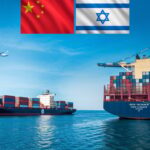

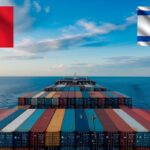







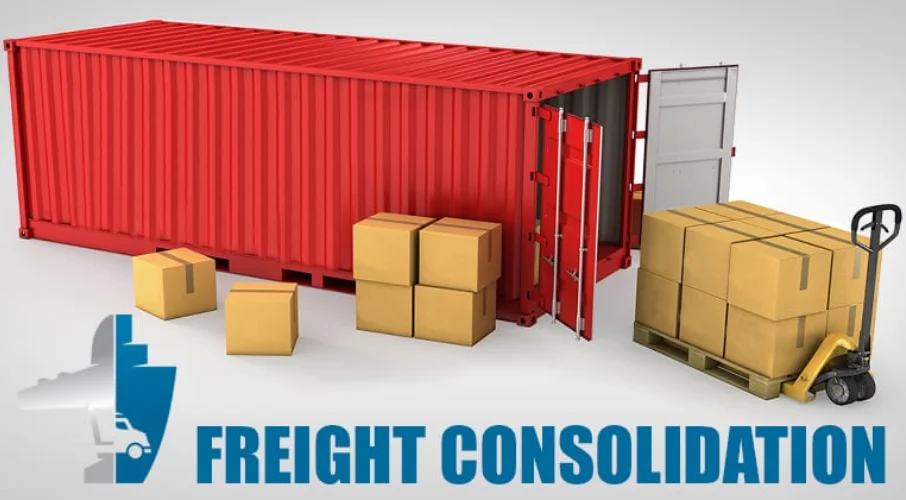
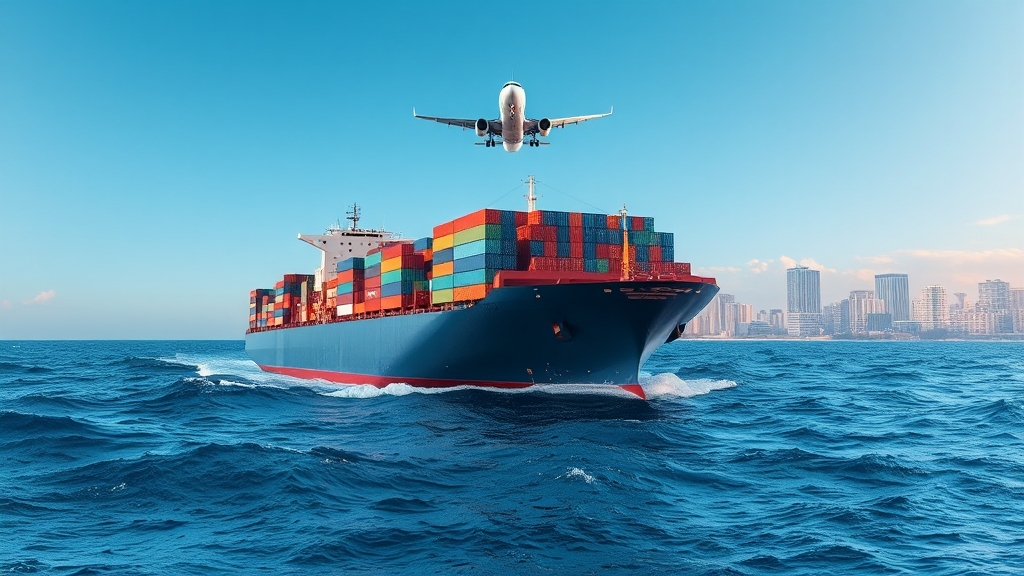
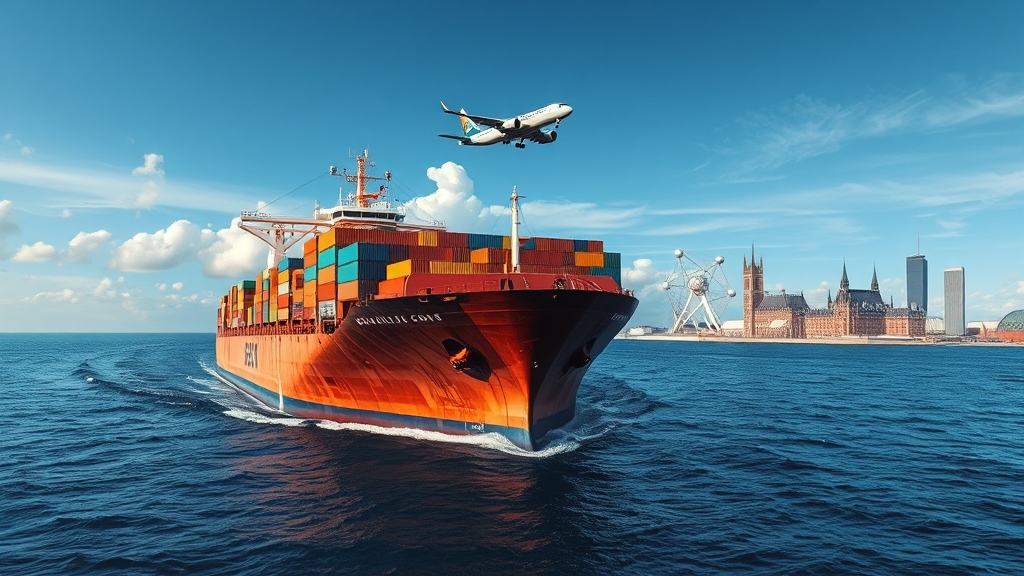
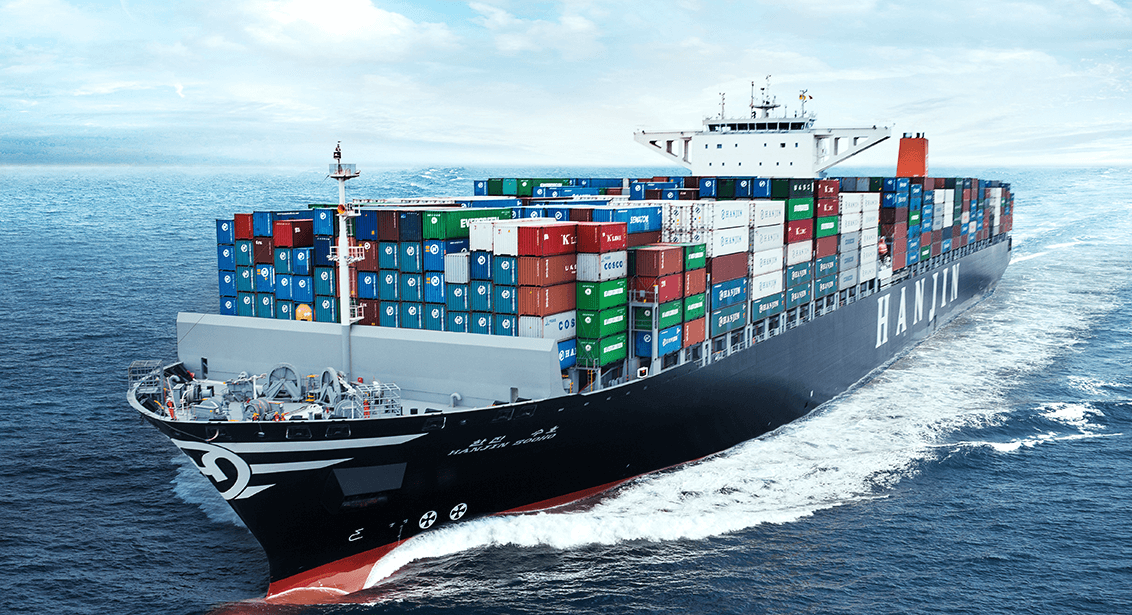
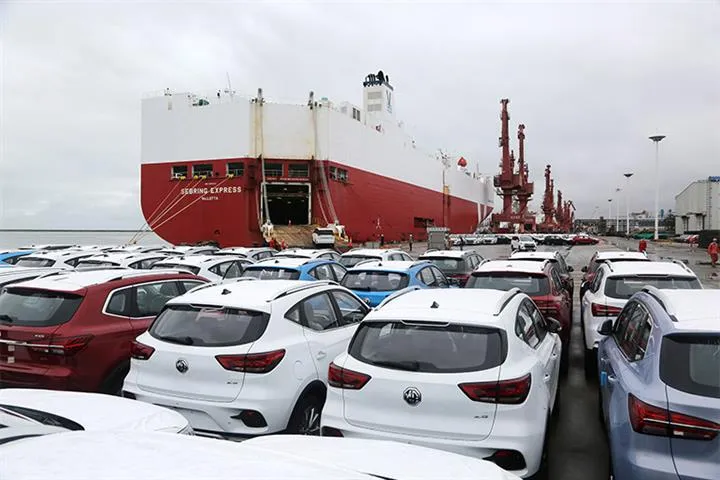





 Afrikaans
Afrikaans Shqip
Shqip አማርኛ
አማርኛ العربية
العربية Հայերեն
Հայերեն Azərbaycan dili
Azərbaycan dili Euskara
Euskara Беларуская мова
Беларуская мова বাংলা
বাংলা Bosanski
Bosanski Български
Български Català
Català Cebuano
Cebuano Chichewa
Chichewa 简体中文
简体中文 繁體中文
繁體中文 Corsu
Corsu Hrvatski
Hrvatski Čeština
Čeština Dansk
Dansk Nederlands
Nederlands English
English Esperanto
Esperanto Eesti
Eesti Filipino
Filipino Suomi
Suomi Français
Français Galego
Galego ქართული
ქართული Deutsch
Deutsch Ελληνικά
Ελληνικά Kreyol ayisyen
Kreyol ayisyen Harshen Hausa
Harshen Hausa Ōlelo Hawaiʻi
Ōlelo Hawaiʻi עִבְרִית
עִבְרִית हिन्दी
हिन्दी Hmong
Hmong Magyar
Magyar Íslenska
Íslenska Igbo
Igbo Bahasa Indonesia
Bahasa Indonesia Gaeilge
Gaeilge Italiano
Italiano 日本語
日本語 Basa Jawa
Basa Jawa ಕನ್ನಡ
ಕನ್ನಡ Қазақ тілі
Қазақ тілі ភាសាខ្មែរ
ភាសាខ្មែរ 한국어
한국어 كوردی
كوردی Кыргызча
Кыргызча ພາສາລາວ
ພາສາລາວ Latin
Latin Latviešu valoda
Latviešu valoda Lietuvių kalba
Lietuvių kalba Lëtzebuergesch
Lëtzebuergesch Македонски јазик
Македонски јазик Malagasy
Malagasy Bahasa Melayu
Bahasa Melayu മലയാളം
മലയാളം Maltese
Maltese Te Reo Māori
Te Reo Māori मराठी
मराठी Монгол
Монгол ဗမာစာ
ဗမာစာ नेपाली
नेपाली Norsk bokmål
Norsk bokmål پښتو
پښتو فارسی
فارسی Polski
Polski Português
Português ਪੰਜਾਬੀ
ਪੰਜਾਬੀ Română
Română Русский
Русский Samoan
Samoan Gàidhlig
Gàidhlig Српски језик
Српски језик Sesotho
Sesotho Shona
Shona سنڌي
سنڌي සිංහල
සිංහල Slovenčina
Slovenčina Slovenščina
Slovenščina Afsoomaali
Afsoomaali Español
Español Basa Sunda
Basa Sunda Kiswahili
Kiswahili Svenska
Svenska Тоҷикӣ
Тоҷикӣ தமிழ்
தமிழ் తెలుగు
తెలుగు ไทย
ไทย Türkçe
Türkçe Українська
Українська اردو
اردو O‘zbekcha
O‘zbekcha Tiếng Việt
Tiếng Việt Cymraeg
Cymraeg יידיש
יידיש Yorùbá
Yorùbá Zulu
Zulu